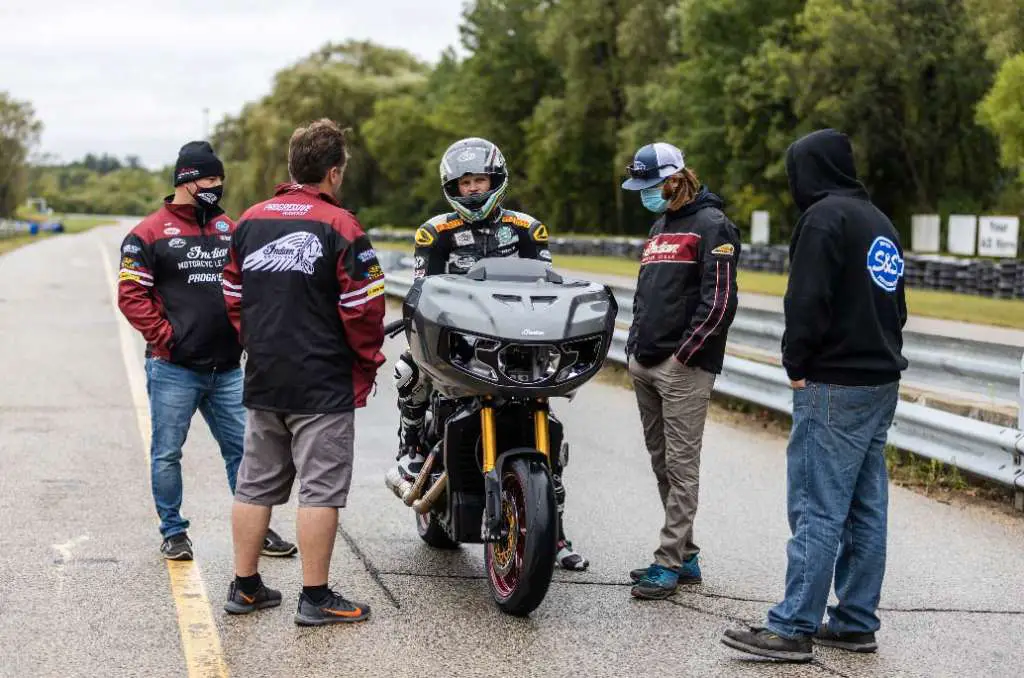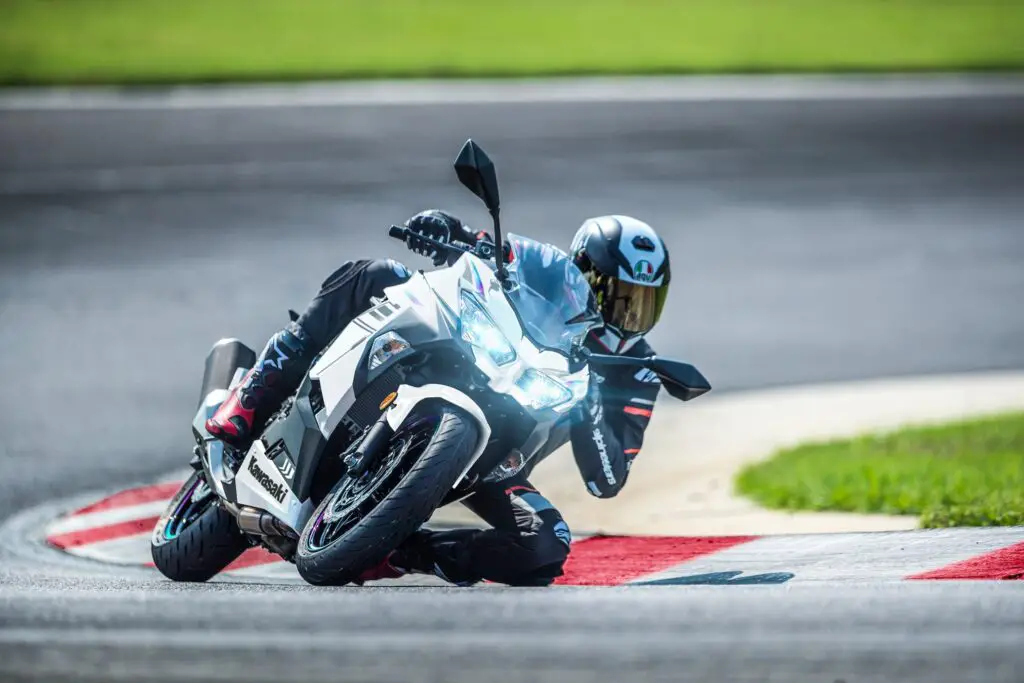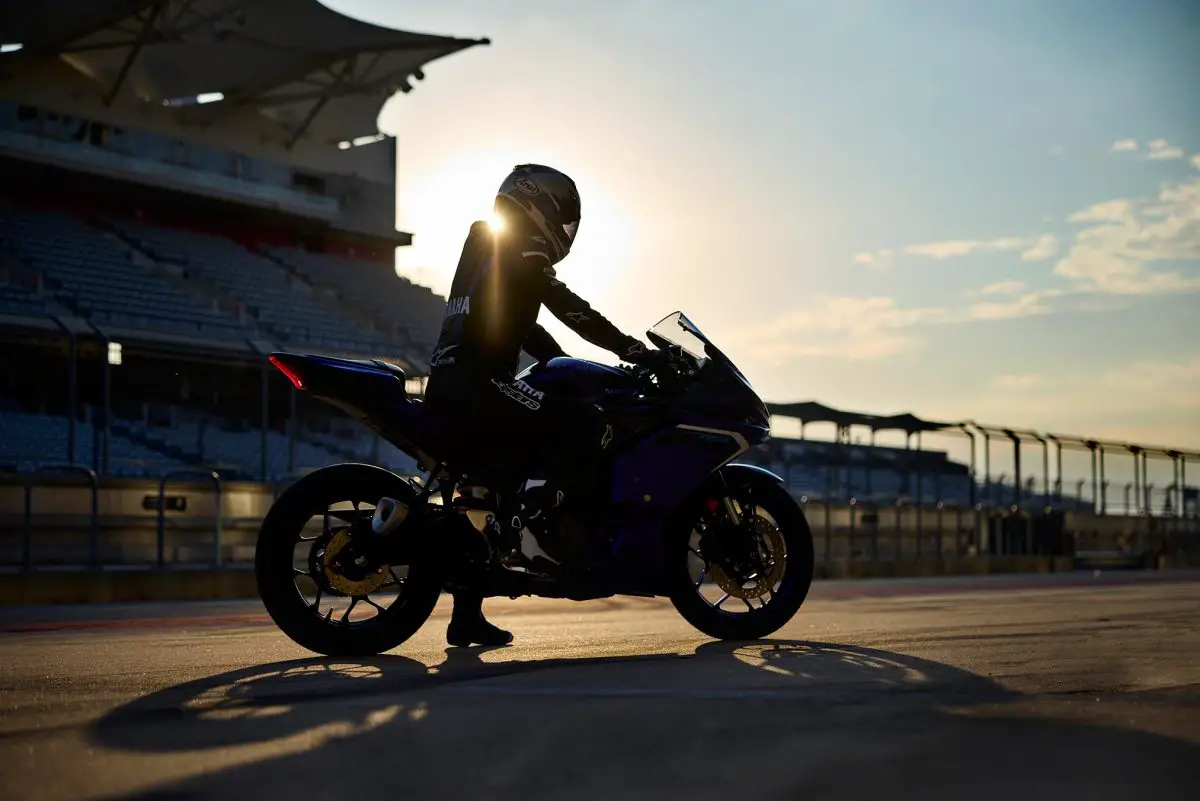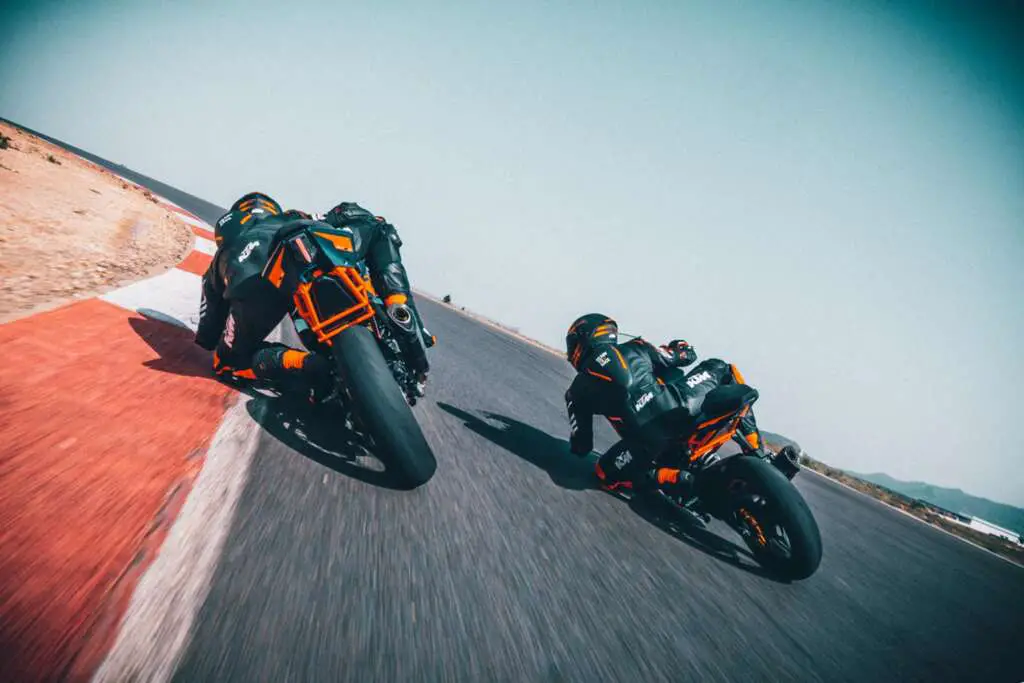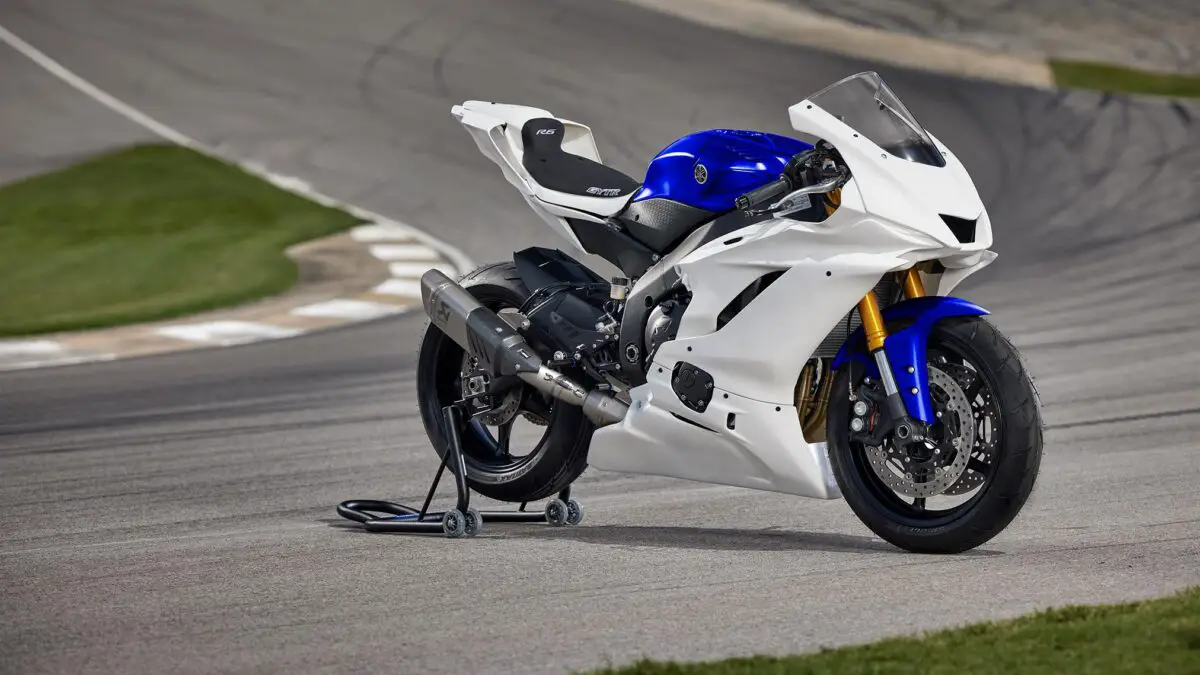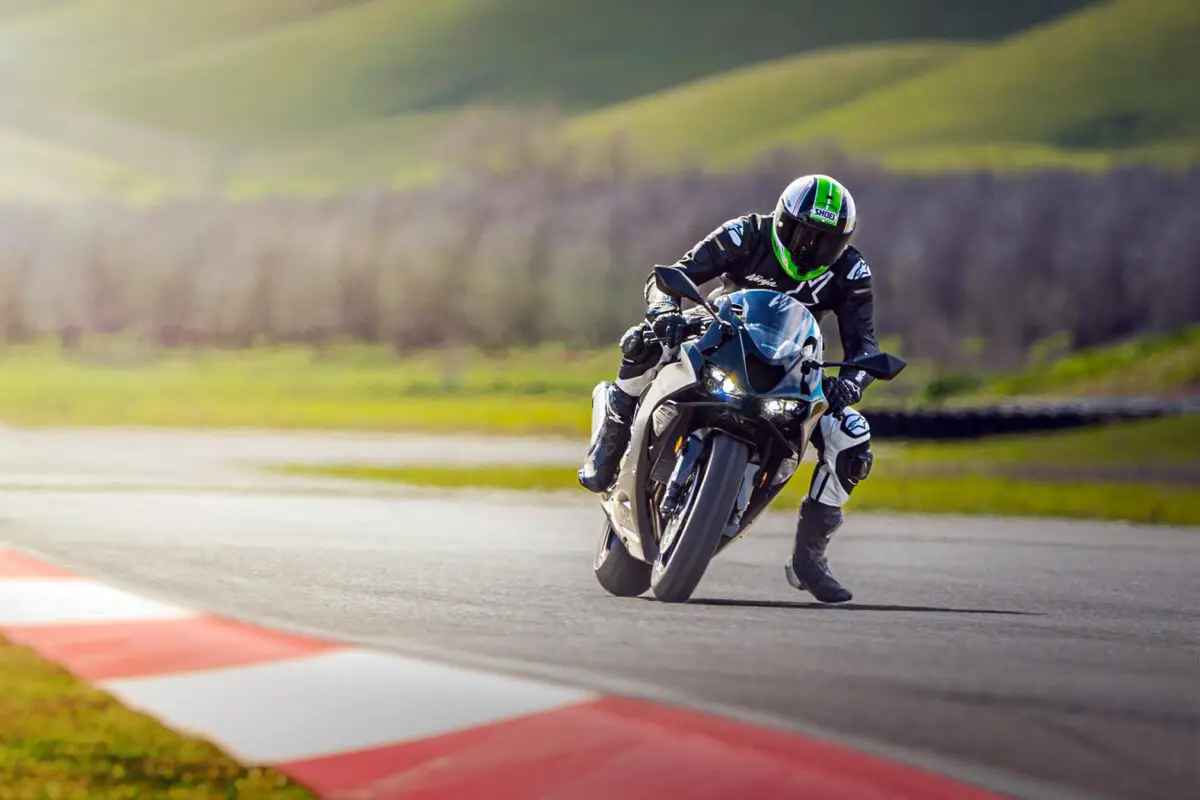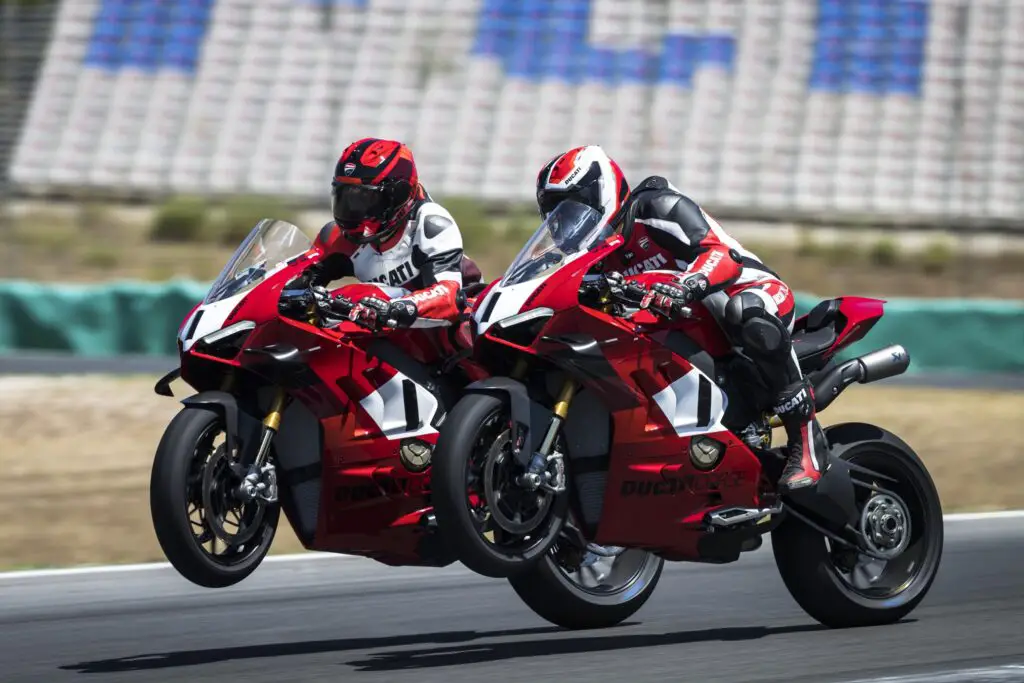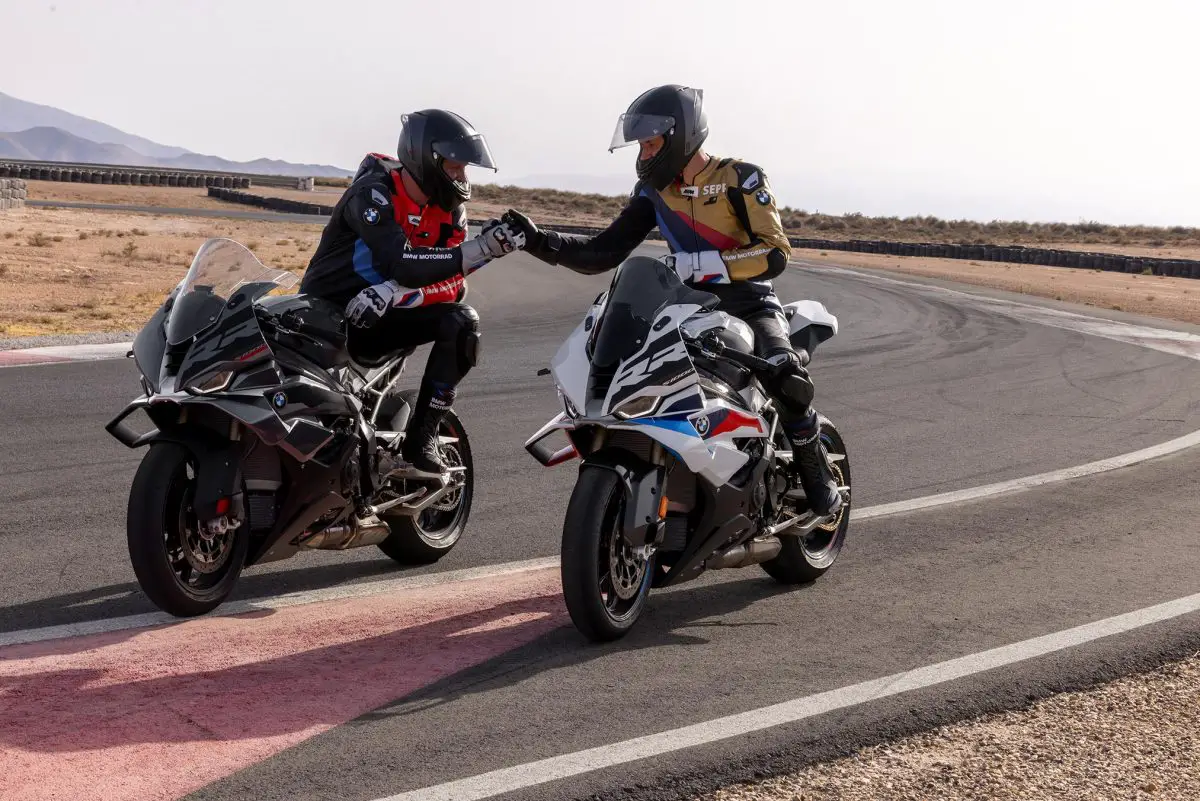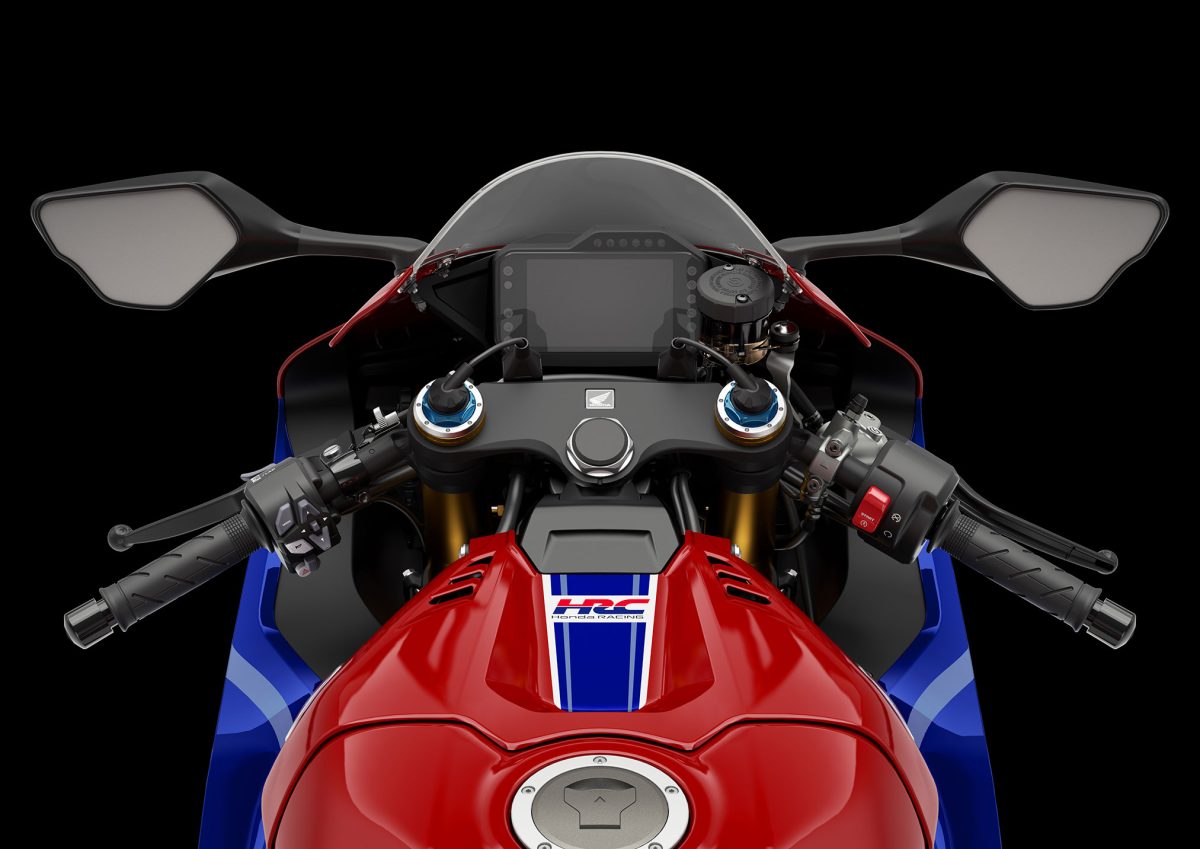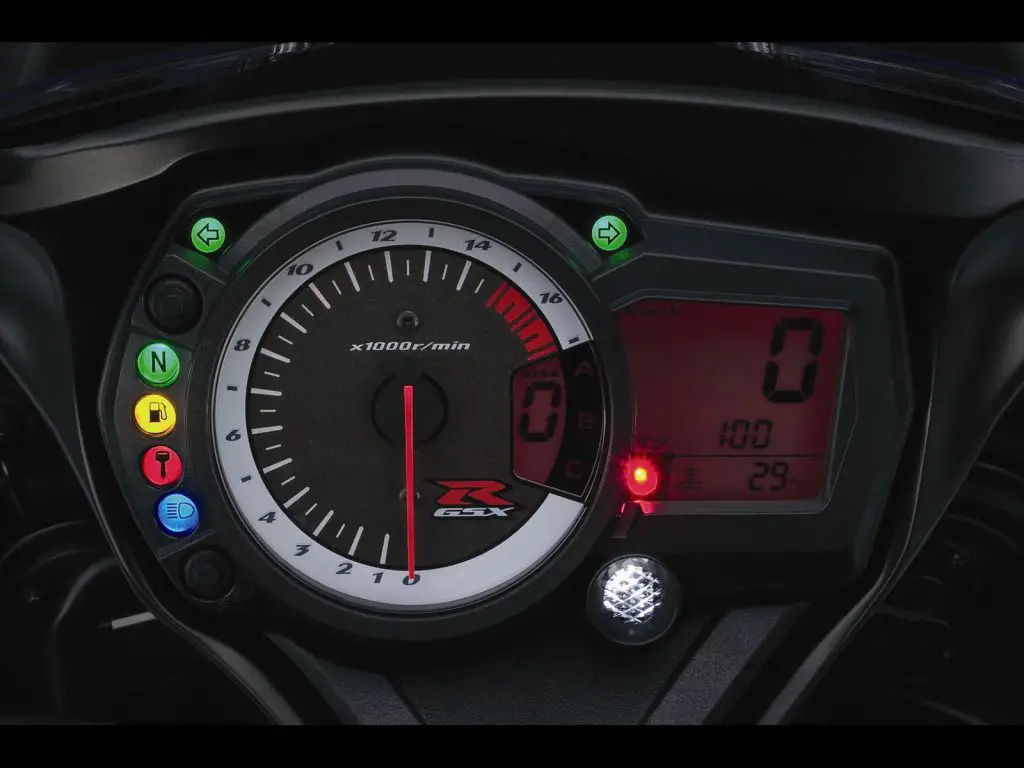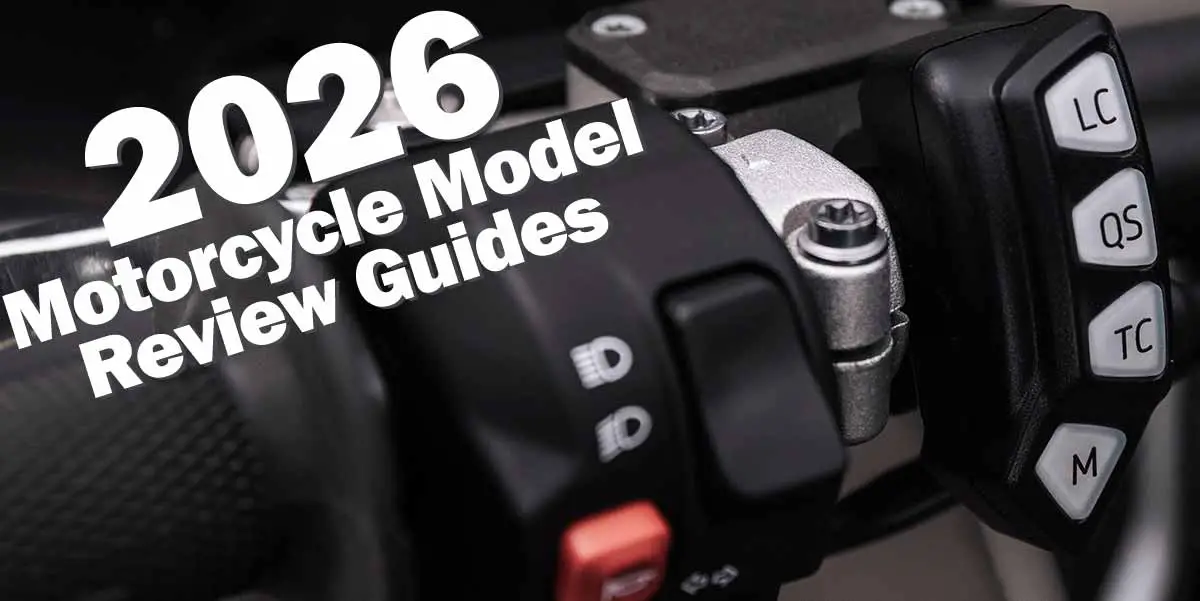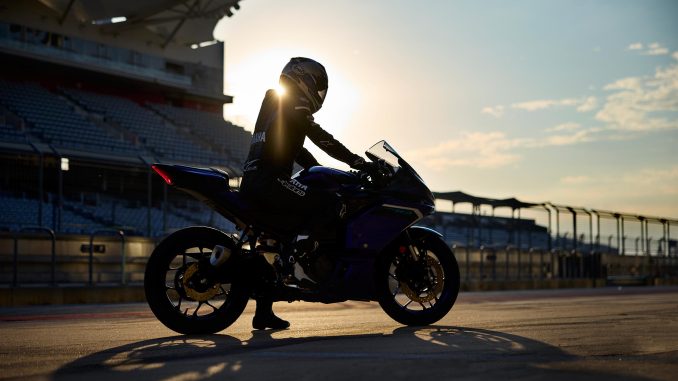
🏁 Motorcycle Track Days Guide
Street skills sharpened, limits tested, confidence boosted, track days are the safest way to explore what your bike (and you) can really do.
🌟 Why Track Days Matter
Track days aren’t just for racers. They’re for anyone who wants to become a smoother, safer, and more confident rider. On the track, you can explore your bike’s performance without traffic, potholes, or speed limits. You’ll learn cornering, braking, and throttle control in a controlled environment, skills that translate directly to safer street riding.
The atmosphere is surprisingly welcoming. Most track days are divided into groups by skill level (beginner, intermediate, advanced), so you’ll ride with others at your pace. Instructors are often available, and the paddock is full of riders swapping tips, tools, and encouragement.
🌱 New Riders at Track Days
If you’re new to motorcycling, a track day might sound intimidating. But beginner groups are designed for you. Speeds are moderate, passing rules are strict, and instructors often lead the first few laps. Think of it as a riding school with extra adrenaline.
🔍 Tips for New Riders
- Start small: Choose a track day with a dedicated novice group and coaching.
- Don’t worry about lap times: Focus on smoothness, not speed.
- Prep your bike: Tape over mirrors, check tire pressures, and make sure brakes are fresh.
- Gear up: Full leathers, gloves, boots, and a Snell/DOT helmet are usually required.
- Ask questions: Track veterans love helping newcomers. Don’t be shy in the paddock.
🚫 New Rider Mistakes
✅ Reality: Track days are about learning, not winning. Ride at your own pace.
✅ Reality: Track riding is physically demanding. Drink water, rest between sessions.
✅ Reality: Smoothness and consistency build speed naturally.
📊 Quick Reference: Beginner Track Day Checklist
| Item | Why |
|---|---|
| Full leathers | Required for protection |
| Fresh brake pads | Track riding is brake‑intensive |
| Tire pressure check | Lower pressures improve grip |
| Mirrors taped | Prevents distraction and glass hazards |
| Water & snacks | Stay hydrated and energized |
🌟 For new riders, a track day is the safest place to push limits and build confidence. It’s not about racing, it’s about learning.
Experienced Riders: Refining Skills & Avoiding Bad Habits
🌟 The Experienced Rider’s Track Day
For seasoned riders, track days are less about survival and more about refinement. You already know how to ride fast, but the track teaches you how to ride smooth. It’s the perfect place to unlearn street habits (like target fixation or panic braking) and replace them with precision techniques.
🔍 Tips for Experienced Riders
- Focus on consistency: Lap times matter less than hitting the same braking point and apex every lap.
- Work on body position: Hanging off, head placement, and relaxed arms reduce lean angle and increase control.
- Use instructors: Even pros benefit from coaching. Ask for a follow‑the‑leader or shadow session.
- Experiment with lines: Try different corner entries and exits to see what feels smoother.
- Mentor others: Share knowledge with new riders in the paddock, it builds community and reinforces your own skills.
🚫 Experienced Rider Mistakes
✅ Reality: Track days are non‑competitive. Aggressive passes or ego‑driven riding endangers everyone.
✅ Reality: Track riding is physically demanding. Core strength and hydration matter as much as horsepower.
✅ Reality: Suspension setup and tire choice matter more than chasing horsepower.
📊 Quick Reference: Experienced Rider Goals
| Focus Area | Why It Matters |
|---|---|
| Braking markers | Builds consistency and confidence |
| Body position | Reduces lean angle, increases grip |
| Throttle control | Smoother exits, less tire wear |
| Corner entry lines | Improves flow and lap rhythm |
| Fitness & hydration | Prevents fatigue and mistakes |
🌟 Experienced riders: the track is your laboratory. Refine, experiment, and share your knowledge.
🔄 Returning Riders: Rediscovering the Track
🌟 The Returning Rider Challenge
Coming back to motorcycling after years away is thrilling, but modern track days may look very different from what you remember. Bikes are faster, gear standards are stricter, and track etiquette has evolved. Returning riders often bring enthusiasm, but may also carry outdated habits or overconfidence.
🔍 Tips for Returning Riders
- Take a refresher course: Many track day orgs offer classroom + on‑track coaching.
- Start in novice group: Even if you were fast years ago, rebuild confidence gradually.
- Learn modern tech: ABS, traction control, and quickshifters change how bikes behave on track.
- Check your bike: Older machines may need brake fluid, tires, and suspension refresh before track use.
- Ride for fun: Don’t compare your current self to your past lap times. Enjoy the rediscovery.
🚫 Returning Rider Mistakes
✅ Reality: Skills fade. Treat yourself as a learner again.
✅ Reality: Start in novice or intermediate to rebuild muscle memory safely.
✅ Reality: Airbag vests, advanced helmets, and modern leathers add huge safety margins.
📊 Quick Reference: Returning Rider Checklist
| Question | Yes | No |
|---|---|---|
| Have you taken a refresher course? | ⬜ | ⬜ |
| Do you know modern track etiquette? | ⬜ | ⬜ |
| Is your bike track‑ready (tires, brakes, fluids)? | ⬜ | ⬜ |
| Are you familiar with ABS/TC on track? | ⬜ | ⬜ |
| Do you have modern protective gear? | ⬜ | ⬜ |
🔄 Returning riders: the track is a time machine. Ride with humility, embrace modern tech, and rediscover the thrill.
🛠️ Preparation & Safety Requirements
Track days aren’t just about twisting the throttle, they’re about preparation. The right gear, bike setup, and mindset make the difference between a fun day and a frustrating one.
👕 Gear Requirements
Most track day organizations have strict gear rules. These aren’t suggestions, they’re mandatory. Even if you never fall, proper gear keeps you comfortable, confident, and focused.
| Gear | Requirement | Notes |
|---|---|---|
| Helmet | Full‑face, DOT/Snell/ECE approved | No modulars; visor down at all times |
| Suit | One‑piece leather or two‑piece zip‑together | Textile rarely accepted; check rules |
| Gloves | Gauntlet‑style, full leather | Wrist coverage required |
| Boots | Over‑the‑ankle, track‑style | No work boots or sneakers |
| Back protector | Often required | Standalone or built into suit |
| Airbag vest | Optional but recommended | Rapidly becoming the new standard |
🏍️ Bike Preparation
Your bike doesn’t need to be a race machine, but it does need to be safe. Track day tech inspections are thorough, and failing them means you don’t ride.
- Fluids: No leaks. Coolant may need to be water‑only (no glycol) at some tracks.
- Brakes: Fresh pads, firm lever, no leaks. Safety wire or tape reservoir caps if required.
- Tires: Good tread, no cracks. Lower pressures recommended for grip.
- Mirrors & lights: Taped or removed to prevent distraction and debris.
- Throttle: Must snap back cleanly.
- Chain: Properly tensioned and lubricated.
💰 Cost Breakdown
Track days aren’t free, but they’re cheaper than crashing on the street. Here’s a rough breakdown:
| Expense | Typical Cost (USD) | Notes |
|---|---|---|
| Track day entry | $150–$300 | Varies by track and organizer |
| Gear rental (if needed) | $50–$150 | Some orgs rent leathers/helmets |
| Tires | $200–$400/set | Track use wears faster |
| Fuel | $30–$60/day | Track riding burns more fuel |
| Crash repairs | $100–$1000+ | Optional, but budget for it |
🚫 Prep Myth‑Busters
✅ Reality: Any well‑maintained street bike can do a track day. Skills matter more than horsepower.
✅ Reality: With proper prep, wear is manageable. Tires and brakes wear faster, but engines are fine.
✅ Reality: A single track day often costs less than a speeding ticket, and teaches skills that may save your life.
🌟 Preparation is half the track day. Show up ready, and the rest is pure fun.
🎯 Riding Techniques & Skill Progression
Track days aren’t about lap records, they’re about building skills step by step. Smoothness, control, and confidence come before speed.
🏍️ Core Track Techniques
- Vision: Look through the corner, not at the apex. Your bike goes where your eyes go.
- Throttle control: Smooth roll‑on after the apex keeps the bike stable and drives you out of corners.
- Braking: Learn progressive braking, squeeze, don’t grab. Trail braking (light brake into the corner) adds stability once mastered.
- Body position: Shift weight to the inside, keep arms relaxed, and move your head toward the mirror. This reduces lean angle and increases grip.
- Line choice: Wide entry, late apex, smooth exit. Consistency beats aggression.
📈 Skill Progression Ladder
Track skills build like rungs on a ladder. Don’t skip steps, each one supports the next.
| Stage | Focus | Outcome |
|---|---|---|
| 1. Smoothness | Throttle, braking, shifting | Bike feels stable, predictable |
| 2. Vision | Looking through corners | Earlier reactions, smoother lines |
| 3. Body position | Relaxed arms, weight shift | Reduced lean angle, more grip |
| 4. Braking markers | Consistent entry points | Confidence at higher speeds |
| 5. Advanced techniques | Trail braking, late apexing | Controlled speed, faster laps |
🧠 Mental Game
Track riding is as much mental as physical. Stay calm, breathe, and focus on one skill at a time. Don’t overload yourself trying to fix everything in one session. Pick one focus (like braking markers) and work on it all day.
🚫 Technique Myth‑Busters
✅ Reality: Smoothness and consistency are the real goals. Speed comes naturally.
✅ Reality: Done gently, it’s a stability tool. Learn it gradually with coaching.
✅ Reality: Proper body position reduces lean angle and increases safety.
📊 Quick Reference: Track vs. Street Skills
| Skill | Track Application | Street Benefit |
|---|---|---|
| Vision | Look through corners at high speed | Better hazard anticipation |
| Throttle control | Smooth exits, traction management | Stability in wet or gravel conditions |
| Braking | Late, progressive, trail braking | Shorter, safer emergency stops |
| Body position | Reduce lean angle, increase grip | Confidence in tight corners |
| Consistency | Repeatable lap times | Predictable, smooth street riding |
🌟 The track is a classroom. Every lap is a lesson, focus on one skill at a time, and progress will come naturally.
🌍 Style‑Specific Track Days
Track days aren’t just for superbikes. Whatever you ride, there’s a track experience for you, each with its own etiquette, expectations, and fun factor.
🏎️ Sportbike Track Days
The classic image of a track day: sportbikes leaned over, knees skimming the tarmac. These events are the most common and structured, with clear skill groups and coaching. Perfect for riders who want to explore corner speed, braking markers, and body position.
- Etiquette: Respect passing rules (usually on straights only for beginners).
- Focus: Smooth throttle, consistent lines, body position.
- Common mistake: Chasing lap times instead of technique.
🌍 Adventure Bike Track Days
Yes, big ADV bikes hit the track too! These days are about learning how tall, heavy machines behave at speed. Riders practice cornering, braking, and emergency maneuvers on pavement, skills that make them safer on long tours.
- Etiquette: Ride in novice or mixed groups; ADV bikes can’t match supersport corner speeds.
- Focus: Braking stability, smooth corner entry, body position for tall bikes.
- Common mistake: Over‑braking mid‑corner due to bike weight.
🏞️ Off‑Road Track Days (MX & Dirt)
Off‑road track days are a different beast: motocross tracks, enduro loops, or flat tracks. Here, the focus is on traction management, body movement, and terrain reading. Crashes are common but usually low‑speed and low‑consequence.
- Etiquette: Signal when pulling off the track, don’t stop on jumps or blind corners.
- Focus: Standing body position, throttle control in dirt, braking on loose surfaces.
- Common mistake: Sitting too much, stand on the pegs for control.
🛵 Scooter Track Days
Scooters on track? Absolutely. Scooter clubs often rent kart tracks or small circuits. These days are about fun, corner speed, and community. Speeds are lower, but the grins are just as wide.
- Etiquette: Keep it playful but safe, scooters can surprise with corner speed.
- Focus: Corner entry smoothness, braking practice, group fun.
- Common mistake: Underestimating how much lean a scooter can handle.
📊 Quick Comparison Table
| Style | Track Type | Main Focus | Common Mistake |
|---|---|---|---|
| Sportbike | Full road course | Corner speed, body position | Chasing lap times |
| Adventure | Road course / training lot | Braking stability, smooth lines | Over‑braking mid‑corner |
| Off‑Road | MX track / dirt loop | Traction, standing control | Sitting too much |
| Scooter | Kart track / small circuit | Corner entry, fun factor | Underestimating lean angle |
🌟 Whatever you ride, there’s a track day for you. The goal isn’t speed, it’s skill, safety, and smiles.
🏆 Top 10 Track Day Tips
These are the golden rules of track days, simple, memorable, and effective. Master these, and you’ll enjoy every lap.
- Arrive early: Give yourself time for registration, tech inspection, and a relaxed setup.
- Hydrate constantly: Track riding is physically demanding. Drink water before, during, and after sessions.
- Check tire pressures: Lower than street settings for grip; ask organizers for recommended PSI.
- Warm up gradually: First laps are for warming tires and body, not chasing speed.
- Ride predictably: Hold your line; faster riders will pass safely.
- Use the paddock wisely: Rest, hydrate, and review what you learned between sessions.
- Focus on one skill: Don’t try to fix everything at once. Pick a theme for each session.
- Respect flags: Yellow = caution, red = stop, black = pit in. Flags are your lifeline.
- Don’t compare: Lap times don’t matter. Smoothness and safety do.
- End on a high note: Quit while you’re still sharp. Fatigue causes mistakes.
🌟 Track days are about learning, not winning. Ride smart, stay safe, and enjoy the flow.
🚩 Essential Track Flags
| Flag | Meaning |
|---|---|
| Green | Track clear, session active |
| Yellow | Caution, no passing |
| Red | Session stopped, return to pits |
| Black | Mechanical issue or rule violation, pit in |
| Checkered | Session over, finish lap and pit in |
📦 Essentials to Bring
| Item | Why |
|---|---|
| Water & snacks | Hydration and energy |
| Folding chair | Rest between sessions |
| Basic tools | Adjust tire pressures, tighten bolts |
| Duct tape & zip ties | Quick fixes in the paddock |
| Fuel can | Track riding burns more gas |
| Notebook | Record tips, lap notes, setup changes |
🏍️ Top 10 Track Day Bikes
From featherweight 300s to liter‑class rockets, here are the bikes that shine brightest on track days, organized by engine size so every rider finds their match.
🔹 Lightweight (300–500cc)
- Kawasaki Ninja 400
- Yamaha R3
- KTM RC 390
Why: Forgiving, affordable, and perfect for learning smoothness and corner speed.
🔹 Middleweight (600–750cc)
- Yamaha YZF‑R6 (track legend)
- Kawasaki ZX‑6R
- Suzuki GSX‑R750
Why: The sweet spot of agility and power. Demands skill, rewards precision.
🔹 Heavyweight (800–1000cc)
- Honda CBR1000RR Fireblade
- BMW S1000RR
- Kawasaki ZX‑10R
- Ducati Panigale V4
Why: Blistering speed and advanced electronics. Best for experienced riders who’ve mastered the basics.
📊 Quick Comparison Table
| Category | Example Bikes | Best For |
|---|---|---|
| Lightweight | Ninja 400, R3, RC 390 | Beginners, corner speed focus |
| Middleweight | R6, ZX‑6R, GSX‑R750 | Intermediate riders, balance of power |
| Heavyweight | CBR1000RR, S1000RR, Panigale V4 | Advanced riders, high‑speed mastery |
🌱 Top 10 Beginner Track Day Bikes
Affordable, forgiving, and fun, these bikes let you focus on learning skills instead of wrestling horsepower.
- Kawasaki Ninja 400
- Yamaha R3
- KTM RC 390
- Honda CBR500R
- Suzuki GSX250R
- Kawasaki Z400 (naked option)
- Honda CB500F (accessible upright)
- Yamaha MT‑03
- KTM Duke 390
- Aprilia RS 457 (new lightweight contender)
Why these bikes: They’re light, affordable, and confidence‑building. Crashes (if they happen) are less costly, and the focus stays on skills, not speed.
🚫 Beginner Bike Myth‑Busters
✅ Reality: Many riders spend years learning on small bikes, they teach corner speed better than liter bikes.
✅ Reality: Passing bigger bikes in corners on a 400 is one of the most satisfying track experiences.
The Spirit of Track Riding
The paddock is where the magic happens: riders swapping tools, sharing water, giving tips, and cheering each other on. It’s a community built on respect and passion. On track, you’ll find yourself riding alongside people of all ages, backgrounds, and bikes, united by the same love of two wheels and the thrill of improving lap after lap.
🌟 Why Track Days Matter Beyond the Track
- Confidence: Once you’ve braked from 100 mph on track, street riding feels calmer and safer.
- Skill transfer: Vision, throttle control, and smoothness make you a better street rider.
- Community: Track days connect you with mentors, friends, and lifelong riding buddies.
- Joy: Few things match the feeling of flowing through corners, lap after lap, in a safe environment.
🚦 Your Next Step
If you’ve never tried a track day, consider this your invitation. Start small, rent gear if you need to, and sign up for a novice group.
If you’re experienced, refine your craft and mentor others. If you’re returning, embrace the rediscovery.
Whatever your path, the track is waiting, and it will make you a better, safer, and happier rider.
🏍️ Ride safe. Ride smart. Ride together. The track isn’t just a place, it’s a classroom, a playground, and a family.
See you in the paddock.


